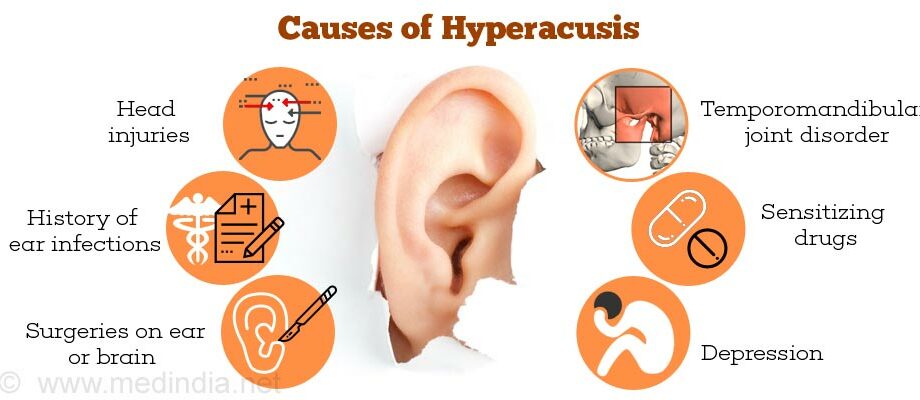Contents
Hyperacusis: all you need to know about this hearing disorder
Hyperacusis is a hearing disorder characterized by hypersensitivity to sound. Constraining, even painful, it requires appropriate medical care to reduce its effects and limit its development.
Definition: what is hyperacusis?
Hyperacusis can be defined as a increased sound perception. This means that a person with hyperacusis is hypersensitive to sounds.
This hearing impairment should not be confused with normal sensitivity to surrounding noise. For a person with hyperacusis, the sounds become annoying, unbearable, even painful. It is also necessary to distinguish hyperacusis from hypoacusia, which corresponds to hearing loss.
The characteristics of hyperacusis may vary from case to case. Hypersensitivity can in particular be:
- unilateral or bilateral, when it concerns one or two ears;
- more or less important, which can go as far as an intolerance of light and banal sounds.
Hyperacusis can occur in isolation but can sometimes be accompanied by other uncomfortable symptoms such as migraines (headache or headache) or tinnitus (whistling or buzzing in the ear). According to current estimates, around 40% of people with tinnitus are affected by hyperacusis.
Explanation: what are the causes of hyperacusis?
The mechanisms at the origin of hyperacusis are still poorly understood today. However, several different causes have already been identified. These include in particular:
- aging ;
- certain emotional shocks, especially during post-traumatic stress syndrome;
- auditory sensory trauma, trauma caused by inadequate exposure to sound, including listening to amplified music;
- facial paralysis, which is due to damage to the facial nerve;
- theautism, which is part of pervasive developmental disorders;
- the head trauma, shocks whose intensity causes damage to various structures of the skull;
- taking ototoxic drugs, which are substances that impair hearing functions.
Evolution: what is the risk of complications?
The consequences of hyperacusis vary from case to case. However, in general, this hearing impairment causes a discomfort in everyday life.
In the more developed forms of hyperacusis, the discomfort may be accompanied by pain and cause a withdrawal. We speak of a self-preservation reflex. A person with hyperacusis prefers to isolate themselves so that they are no longer exposed to everyday noises.
Over the long term, this avoidance strategy can amplify the symptom of hyperacusis. The brain assimilates the absence of noise as hearing loss and seeks to compensate for it by increasing auditory perception. This has the consequence of accentuating the hypersensitivity to sounds.
In some cases, the course of hyperacusis can lead to the onset of a depressive syndrome. To limit the risk of complications, early medical treatment is necessary.
Diagnosis and treatment: what are the solutions?
Diagnosis of hyperacusis
The diagnosis of hyperacusis is usually made by an otolaryngologist. a full ENT check-up is often needed to identify the cause of hypersensitivity.
Treatment of hyperacusis
The management of hyperacusis depends on the diagnosis. It often involves a multidisciplinary team, which may involve an otolaryngologist, a hearing care professional and a psychologist.
When hyperacusis is managed early, the wearing noisemakers is often recommended. These are medical devices that soften certain sounds and can lead to total healing in 6 to 8 months.
In the most developed forms of hyperacusis, management generally requires psychological follow-up. Sophrology sessions, or cognitive and behavioral therapies, can in particular be implemented to fight against the isolation of people with hyperacusis.










